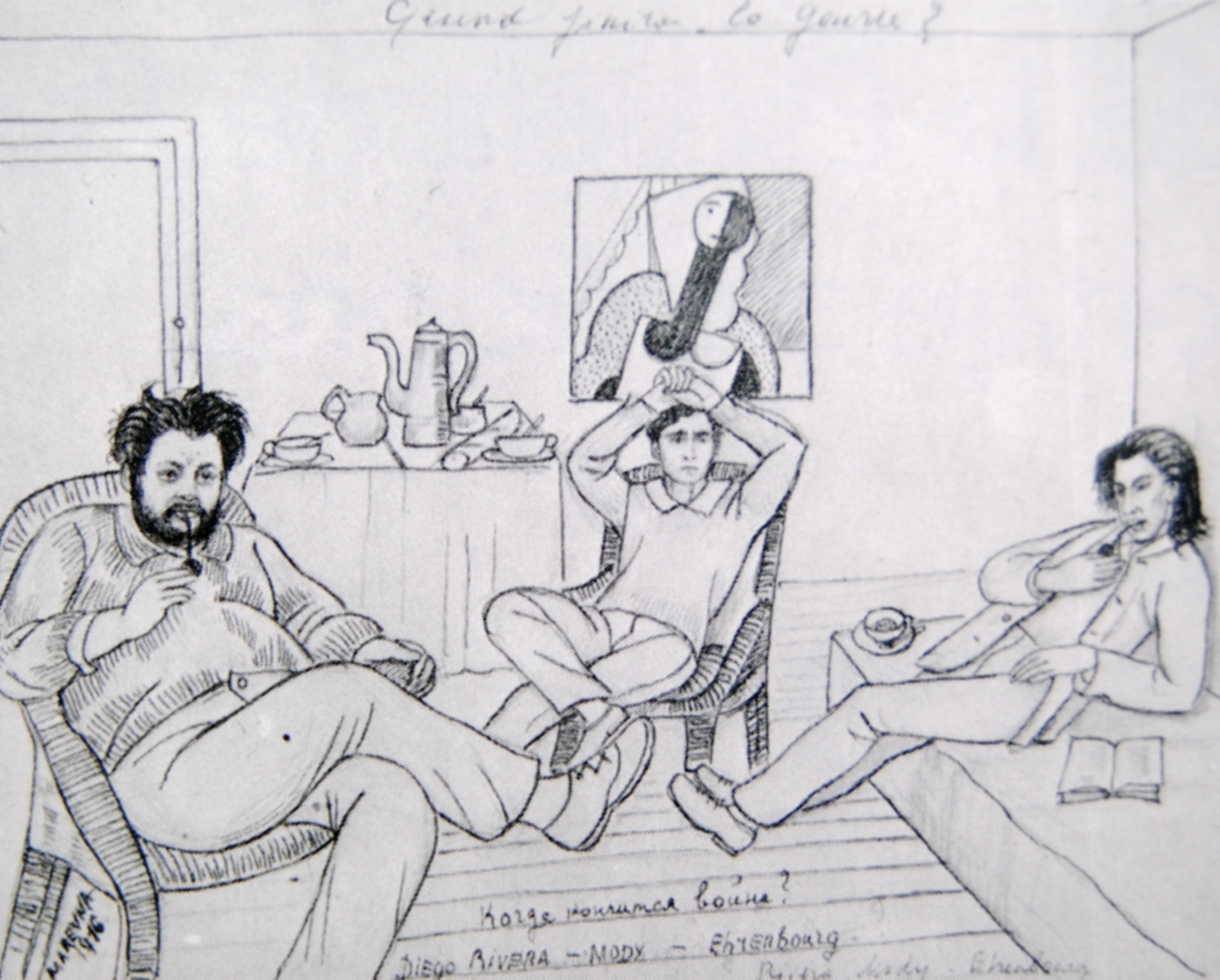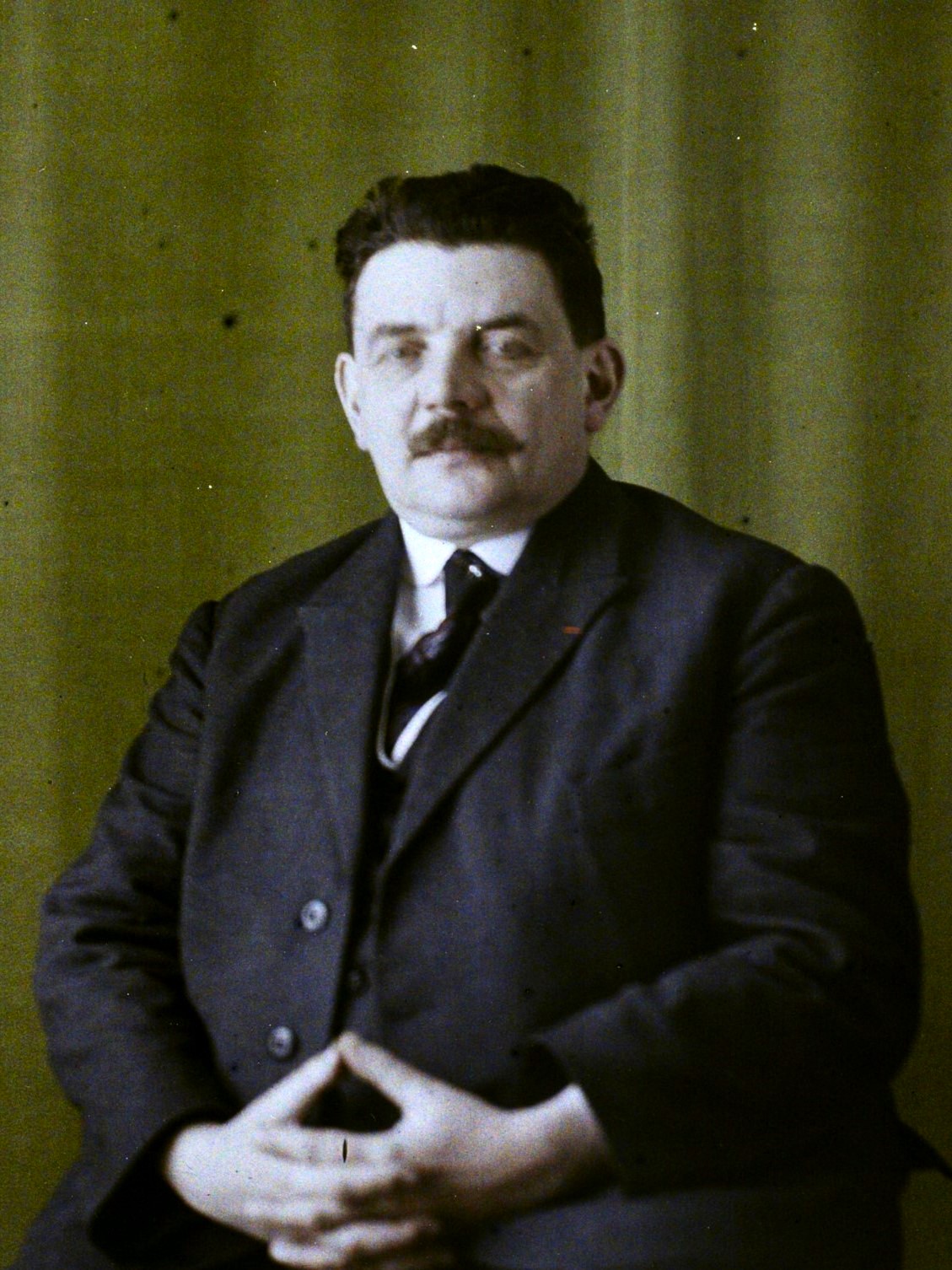|
France–Soviet Union Relations
Foreign relations between France and the Soviet Union officially began on 28 October, 1924. Initially, France opposed the Bolsheviks and supported anti-communist forces in Russia. However, by 1924, both countries sought international trade, leading to increased commercial and cultural exchanges. Throughout the 20th century, the relationship between France and the Soviet Union experienced periods of alliance and discord. The two nations signed a treaty of alliance and mutual assistance during World War II, but tensions rose during the Cold War. France's communist party had strong influence domestically, and the decolonization of the French colonial empire provided Moscow with opportunities to support anti-colonial movements. In the 1960s and 1970s, France tried to act as a broker between Moscow and Washington, but relations were strained by events such as the Soviet invasion of Czechoslovakia. History 1917-1941 The Bolsheviks opted for peace with Germany in 1917 and refused to honou ... [...More Info...] [...Related Items...] OR: [Wikipedia] [Google] [Baidu] |
Embassy Of France, Moscow
A diplomatic mission or foreign mission is a group of people from a Sovereign state, state or organization present in another state to represent the sending state or organization officially in the receiving or host state. In practice, the phrase usually denotes an embassy or high commission, which is the main office of a country's Diplomacy, diplomatic representatives to another country; it is usually, but not necessarily, based in the receiving state's Capital (political), capital city. Consulates, on the other hand, are smaller diplomatic missions that are normally located in major cities of the receiving state (but can be located in the capital, typically when the sending country has no embassy in the receiving state). In addition to being a diplomatic mission to the country in which it is located, an embassy may also be a non-resident permanent mission to one or more other countries. The term embassy is sometimes used interchangeably with Chancery (diplomacy), chancery, the p ... [...More Info...] [...Related Items...] OR: [Wikipedia] [Google] [Baidu] |
Molotov–Ribbentrop Pact
The Molotov–Ribbentrop Pact, officially the Treaty of Non-Aggression between Germany and the Union of Soviet Socialist Republics, and also known as the Hitler–Stalin Pact and the Nazi–Soviet Pact, was a non-aggression pact between Nazi Germany and the Soviet Union, with a secret protocol establishing Soviet and German spheres of influence across Eastern Europe. The pact was signed in Moscow on 24 August 1939 (backdated 23 August 1939) by Soviet Foreign Minister Vyacheslav Molotov and German Foreign Minister Joachim von Ribbentrop. The treaty was the culmination of negotiations around Nazi–Soviet economic relations (1934–1941)#1938–1939 deal discussions, the 1938–1939 deal discussions, after tripartite discussions between the Soviet Union, the United Kingdom and France had broken down. The Soviet-German pact committed both sides to neither aid nor ally itself with an enemy of the other for the following 10 years. Under the Secret Protocol, Second Polish Republic, ... [...More Info...] [...Related Items...] OR: [Wikipedia] [Google] [Baidu] |
World War II
World War II or the Second World War (1 September 1939 – 2 September 1945) was a World war, global conflict between two coalitions: the Allies of World War II, Allies and the Axis powers. World War II by country, Nearly all of the world's countries participated, with many nations mobilising all resources in pursuit of total war. Tanks in World War II, Tanks and Air warfare of World War II, aircraft played major roles, enabling the strategic bombing of cities and delivery of the Atomic bombings of Hiroshima and Nagasaki, first and only nuclear weapons ever used in war. World War II is the List of wars by death toll, deadliest conflict in history, causing World War II casualties, the death of 70 to 85 million people, more than half of whom were civilians. Millions died in genocides, including the Holocaust, and by massacres, starvation, and disease. After the Allied victory, Allied-occupied Germany, Germany, Allied-occupied Austria, Austria, Occupation of Japan, Japan, a ... [...More Info...] [...Related Items...] OR: [Wikipedia] [Google] [Baidu] |
Maxim Litvinov
Maxim Maximovich Litvinov (; born Meir Henoch Wallach-Finkelstein; 17 July 1876 – 31 December 1951) was a Russian Empire, Russian revolutionary and prominent Soviet Union, Soviet statesman and diplomat who served as Ministry of Foreign Affairs (Soviet Union), People's Commissar for Foreign Affairs from 1930 to 1939. Litvinov was an advocate for diplomatic agreements leading to disarmament, and was influential in making the Soviet Union a party to the 1928 Kellogg–Briand Pact. He was also responsible for the 1929 Litvinov Protocol, a multilateral agreement to implement the Kellogg-Briand Pact between the Soviet Union and several neighboring states. In 1930, Litvinov was appointed People's Commissar of Foreign Affairs, the highest diplomatic position in the USSR. During the 1930s, Litvinov advocated the official Soviet policy of collective security with Western powers against Nazi Germany. Early life and first exile Meir Henoch Wallach was born into a wealthy, Yiddish- ... [...More Info...] [...Related Items...] OR: [Wikipedia] [Google] [Baidu] |
Franco-Soviet Treaty Of Mutual Assistance
The Franco-Soviet Treaty of Mutual Assistance was a bilateral treaty between France and the Soviet Union with the aim of enveloping Nazi Germany in 1935 to reduce the threat from Central Europe. It was pursued by Maxim Litvinov, the Soviet foreign minister, and Louis Barthou, the French foreign minister, who was assassinated in October 1934, before negotiations had been finished. His successor, Pierre Laval, was sceptical of the desirability and of the value of an alliance with the Soviet Union. However, after the declaration of German rearmament in March 1935, the French government forced the reluctant foreign minister to complete the arrangements with Moscow that Barthou had begun. Ratification The pact was concluded in Paris on 2 May 1935 and ratified by the French government in February 1936. Ratifications were exchanged in Moscow on 27 March 1936, and the pact went into effect the same day. It was registered in ''League of Nations Treaty Series'' on 18 April 1936. Lava ... [...More Info...] [...Related Items...] OR: [Wikipedia] [Google] [Baidu] |
Ilya Ehrenburg
Ilya Grigoryevich Ehrenburg (, ; – August 31, 1967) was a Soviet writer, revolutionary, journalist and historian. Ehrenburg was among the most prolific and notable authors of the Soviet Union; he published around one hundred titles. He became known first and foremost as a novelist and a journalist – in particular, as a reporter in three wars (First World War, Spanish Civil War and the Second World War). His incendiary articles calling for violence against Germans during the ''Great Patriotic War'' won him a huge following among front-line Soviet soldiers, but also caused much controversy due to their perceived anti-German sentiment. Ehrenburg later clarified that his writings were about "German aggressors who set foot on Soviet soil with weapons", not the whole German people. The novel '' The Thaw'' gave its name to an entire era of Soviet politics, namely, the liberalization which occurred after the death of Joseph Stalin. Ehrenburg's travel writing also had great resonan ... [...More Info...] [...Related Items...] OR: [Wikipedia] [Google] [Baidu] |
Maxim Gorky
Alexei Maximovich Peshkov (; – 18 June 1936), popularly known as Maxim Gorky (; ), was a Russian and Soviet writer and proponent of socialism. He was nominated five times for the Nobel Prize in Literature. Before his success as an author, he travelled widely across the Russian Empire, changing jobs frequently; these experiences would later influence his writing. He associated with fellow Russian writers Leo Tolstoy and Anton Chekhov, both mentioned by Gorky in his memoirs. Gorky was active in the emerging Marxist socialist movement and later supported the Bolsheviks. He publicly opposed the Tsarist regime and for a time closely associated himself with Vladimir Lenin and Alexander Bogdanov's Bolshevik wing of the Russian Social Democratic Labour Party. During World War I, Gorky supported pacifism and internationalism and anti-war protests. For a significant part of his life, he was exiled from Russia and later the Soviet Union, being critical both of Tsarism and of ... [...More Info...] [...Related Items...] OR: [Wikipedia] [Google] [Baidu] |
Édouard Herriot
Édouard Marie Herriot (; 5 July 1872 – 26 March 1957) was a French Radical politician of the Third Republic who served three times as Prime Minister (1924–1925; 1926; 1932) and twice as President of the Chamber of Deputies. He led the first Cartel des Gauches. Under the Fourth Republic, he served as President of the National Assembly until 1954. A historian by occupation, Herriot was elected to the Académie Française's eighth seat in 1946. He served as Mayor of Lyon for more than 45 years, from 1905 until his death, except for a brief period from 1940 to 1945, when he was exiled to Germany for opposing the Vichy regime. Life Herriot was born at Troyes, France on 5 July 1872. As Mayor of Lyon, Herriot improved relations between municipal government and local unions, increased public assistance funds, and began an urban renewal programme, amongst other measures. He died in Lyon on 26 March 1957. He went through a Deathbed conversion to Catholicism with Cardinal Pier ... [...More Info...] [...Related Items...] OR: [Wikipedia] [Google] [Baidu] |
New Economic Policy
The New Economic Policy (NEP) () was an economic policy of the Soviet Union proposed by Vladimir Lenin in 1921 as a temporary expedient. Lenin characterized the NEP in 1922 as an economic system that would include "a free market and capitalism, both subject to state control", while socialized state enterprises would operate on "a profit basis". ''Nouveau riche'' people who took an advantage of NEP were called NEPmen (). The NEP represented a more market-oriented economic policy (deemed necessary after the Russian Civil War of 1918 to 1922) to foster the economy of the country, which had suffered severely since 1915. The Soviet authorities partially revoked the complete nationalization of industry (established during the period of war communism of 1918 to 1921) and introduced a mixed economy which allowed private individuals to own small and medium-sized enterprises, while the state continued to control large industries, banks and foreign trade. The Bolshevik government adopted ... [...More Info...] [...Related Items...] OR: [Wikipedia] [Google] [Baidu] |
World Revolution
World revolution is the Marxist concept of overthrowing capitalism in all countries through the conscious revolutionary action of the organized working class. For theorists, these revolutions will not necessarily occur simultaneously, but where and when local conditions allow a revolutionary party to successfully replace bourgeois ownership and rule, and install a workers' state based on social ownership of the means of production. In many Marxist schools, such as Trotskyism and communist left, the essentially international character of the class struggle and the necessity of global scope are critical elements and a chief explanation of the failure of socialism in one country. The end goal of such internationally oriented revolutionary socialism is to achieve world socialism, and later, a communist society. Communist movements The October Revolution of 1917 in Russia sparked a revolutionary wave of socialist and communist uprisings across Europe, most notably the Ger ... [...More Info...] [...Related Items...] OR: [Wikipedia] [Google] [Baidu] |
Polish–Soviet War
The Polish–Soviet War (14 February 1919 – 18 March 1921) was fought primarily between the Second Polish Republic and the Russian Soviet Federative Socialist Republic, following World War I and the Russian Revolution. After the collapse of the Central Powers and the Armistice of 11 November 1918, Vladimir Lenin's Soviet Russia annulled the Treaty of Brest-Litovsk and moved forces westward to reclaim the ''Ober Ost'' regions abandoned by the Germans. Lenin viewed the newly independent Poland as a critical route for spreading communist revolutions into Europe. Meanwhile, Polish leaders, including Józef Piłsudski, aimed to restore Poland's First Partition of Poland, pre-1772 borders and secure the country's position in the region. Throughout 1919, Polish forces occupied much of present-day Lithuania and Belarus, emerging victorious in the Polish–Ukrainian War. However, Soviet forces regained strength after their victories in the Russian Civil War, and Symon Petliura, lea ... [...More Info...] [...Related Items...] OR: [Wikipedia] [Google] [Baidu] |







